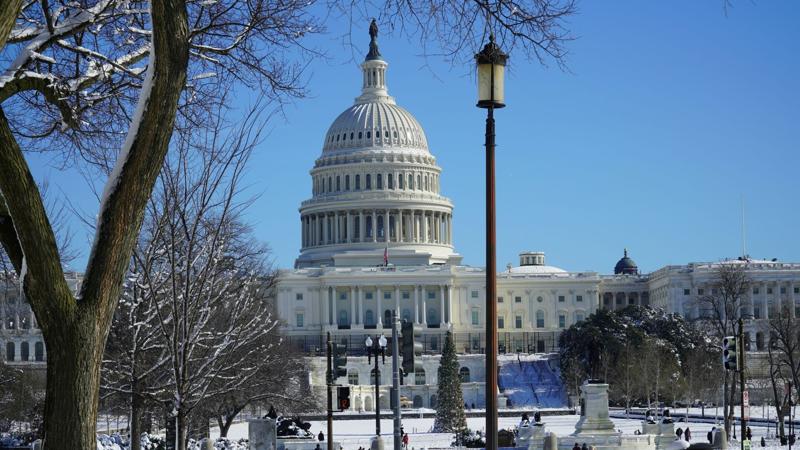After 17 hours of debate, lawmakers on the House Ways and Means Committee voted along party lines to advance Republicans’ $3.8 trillion tax cut bill, a significant step forward in codifying President Donald Trump’s campaign priorities through the budget reconciliation process.
Under the Republican budget reconciliation blueprint, Ways and Means tax writers could budget $4.5 trillion in lost revenue over the next decade, provided that they also find $2 trillion in cuts and assume $2.6 trillion in economic growth.
The committee’s original 389-page bill, which permanently extended key portions of the expiring 2017 Tax Cuts and Jobs Act, fell well within that range at the cost of roughly $3.8 trillion. Multiple amendments from Democrats were shot down during the markup, and the bill passed Wednesday morning, 26-19, without any significant changes.
“It’s sad that every single committee Democrat voted for the largest tax hike in American history and against additional tax relief for families, farmers, and small businesses,” committee Chairman Jason Smith, R-Mo., said in a statement following the vote. “Ways and Means Republicans will continue to work closely with President Trump and our House colleagues to get the One, Big, Beautiful Bill that delivers on the President’s agenda to his desk as soon as possible.”
The bill raises the debt ceiling by $4 trillion and makes permanent the higher standard deduction for nearly all tax filers, the doubled child tax credit, the paid family leave tax credit, and the Qualified Business Income (QBI) deduction.
It also includes some short term tax provisions lasting four years, including boosting the standard deduction for individuals from $15,000 to $16,000 and from $30,000 to $32,000 for joint filers. The maximum child tax credit would also increase by $500 to $2,500, and the QBI would go from 20% to 23% until fiscal year 2028.
Trump’s major campaign promises to end taxes on tips and overtime pay are temporarily fulfilled by the bill, which would implement those policies, plus a $4,000 increase in tax deductions for eligible seniors, for the next four years.
American manufacturers would also benefit from the legislation, which would allow them to deduct 100% of facility improvement or construction costs. But the bill would deal a blow to large universities by increasing taxes on endowments, as well as hiking taxes on many private foundations.
Those taxes, as well as the repeal or phaseout of $560 billion in renewable energy subsidies from the Inflation Reduction Act, would help partially offset the cost of the tax cut extension. Republicans are also using an accounting tactic called current policy baseline to assume that permanently extending tax cuts from the original TCJA will cost nothing.
But organizations like the Committee for a Responsible Federal Budget have warned that Republicans’ tax wish list would still add trillions to the national debt and up to $5.3 trillion to the federal deficit over the next decade.
Ways and Means Democrats echoed CRFB’s concerns throughout the long markup and blasted the cuts to renewable energy subsidies. They particularly focused on how financing the tax cut extension also relies on other House committees reducing spending on Medicaid and SNAP.
Rep. Linda Sanchez, D-Calif., called the bill “an insult to every hard-working American.”
“This bill sends a clear message: you’ll pay more, and you’ll receive fewer services just so that billionaires can pocket another tax cut that they really don’t need,” Sanchez said during the markup.
Even though the bill passed the committee, House Republicans still need to achieve consensus on state and local tax deductions. The legislation raises the state and local tax, or SALT, deduction cap from $10,000 to $30,000 for most single and joint filers, but multiple Republicans from New York have said the number is too low.
These lawmakers pledged to oppose the final megabill, which the House Budget Committee will craft Friday by assimilating all marked up committee bills, if the SALT cap doesn’t change.
Even if the megabill passes the House floor, Senate Republicans have indicated they want to change other parts of it, especially provisions repealing Inflation Reduction Act subsidies that many Republican states have already taken advantage of.
As The Center Square reported, Sen. Ron Johnson, R-Wis., has said he will oppose the final product unless more spending cuts are included.






